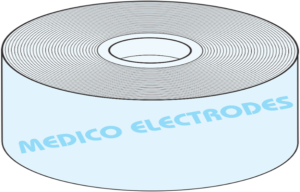How to Incorporate Speech Therapy into Daily Routines

As great as speech therapy for adults is, being able to incorporate it into daily activities can greatly increase its effectiveness and encourage ongoing improvement. Incorporating exercises and methods into regular activities can assist adults receiving speech therapy in practising their abilities and make speech therapy more applicable to their everyday lives. Here are some doable strategies for smoothly integrating speech therapy into everyday activities.
Morning Routines
The best time to start including speech therapy exercises is in the morning. Simple breathing techniques and vocal warm-ups can help you speak more clearly and in control of your voice throughout the day. While doing other morning chores like taking a shower or putting on clothes, these activities can be completed. Reading aloud from a favourite book or article can also improve fluency and articulation.
Conversations Over Meals
An ideal environment for honing speech and language abilities is during meals. Have deep talks at breakfast, lunch, and dinner with loved ones or friends. Make sure to use a variety of terminology, proper loudness, and excellent articulation. Talking about daily schedules, current affairs, or any other fascinating subject can help improve one’s expressive language and cognitive-communication skills.
Making Use of Technology
Technology is a useful tool for integrating speech therapy into everyday activities. With the help of apps and software, interactive speech therapy activities can be effortlessly included in brief breaks throughout the day. Allocating a short period for these activities can reinforce the abilities learned in treatment sessions. Moreover, utilising computers’ or cellphones’ speech-to-text capabilities might enhance dictation and articulation abilities.
Domestic Tasks
There are many possibilities for practising speech therapy strategies while doing household chores. Labelling household items, explaining chores as they are completed, or adhering to multi-step instructions can all enhance expressive language and language comprehension. Practical language practice can be achieved, for instance, by explaining how to organize a room or recounting the steps of a cooking recipe.
Social Exchanges
It is essential to integrate speech therapy into social interactions to help clients apply their skills to everyday situations. Try to strike up and take part in discussions with friends, family, and coworkers. Proper turn-taking techniques, active listening exercises, and eye contact can improve social communication abilities. These kinds of encounters can be especially helpful for adults in professional contexts where good communication is crucial.
Reading and Writing Activities
Regular writing and reading activities can substantially aid speech therapy goals. Make time to read aloud from books, newspapers, or periodicals with an emphasis on expression and clarity. Composing letters, journals, or even postings on social media can aid with word discovery and linguistic structure. These activities can also help you practice using new vocabulary and sentence structures.
Including Puzzles and Games
Fun and interesting methods to integrate speech therapy into everyday activities include games and puzzles. Playing verbally intensive board games, crossword puzzles, and word games might help strengthen language skills. By enjoying these activities with friends or family, the practice becomes less therapeutic and more fun.
Evening Schedule
Speech therapy activities can also be incorporated into evening routines. Language practice can greatly benefit from discussing the day’s highlights and difficulties as you reflect on your activities. Relaxation techniques like progressive muscle relaxation and deep breathing can also reduce speech anxiety and support vocal control.
Patience and Consistency
Incorporating speech therapy into everyday life requires consistency. To encourage consistent practice, incorporate speech exercises and tactics into everyday activities. Since speech treatment progresses slowly, patience is also vital. Acknowledge minor victories and maintain motivation by observing the gradual progress that has been made.
Conclusion
Including speech therapy in everyday activities can help it work better and encourage long-term improvement. People can reinforce their communication skills in meaningful and useful ways by incorporating exercises into their social contacts, household tasks, breakfast routines, dinner talks, and leisure activities. When speech therapy is effectively integrated into everyday life, it becomes more relevant and effective for adults, improving their quality of life and producing better results.







